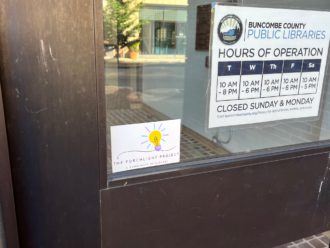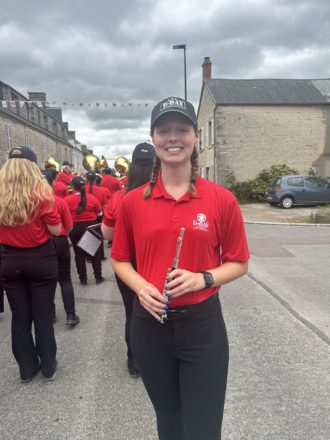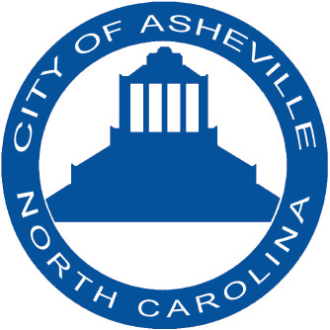While the programs will be eliminated, classes in those areas will still be offered, van Noort repeatedly told the board’s Committee on Educational Planning, Policies, and Programs before the board’s action.


While the programs will be eliminated, classes in those areas will still be offered, van Noort repeatedly told the board’s Committee on Educational Planning, Policies, and Programs before the board’s action.

The Association of Alternative Newsmedia recently announced its 2024 award winners. Xpress staff won first place in the Special Publication category for its Best of WNC guide. The paper also won multiple North Carolina Press Association awards.

Safe Haven will be an emergency shelter operating 24/7 and year-round with 36 beds for single women, women with children and up to two intact families.

“The reason that we ask businesses to be involved is because [going to these places] is sometimes the only opportunity that people have to speak at all about what’s happening at home,” says Caitrin Doyle of Helpmate.

One of The Hop and Lee’s One Fortune Farm’s favorite collaborations is their peach ice cream, which was released last week.

“We’re a spectacle. Sometimes people are rubbernecking as we drive down the road,” says Move It Or Lose It owner Amalia Grannis.

A new independent monitor, selected by Dogwood Health Trust to gauge the communities’ opinions of HCA and the company’s ongoing compliance with the terms of its acquisition of the Asheville-based Mission Health chain, is already losing the trust of Brevard’s leadership.

Amid a housing crisis that has seen costs continue to skyrocket as supply can’t keep up with the rising demand, many families are just one bad break away from becoming homeless. But this fiscal year, Buncombe County is making its biggest investment yet in affordable housing. For the first time in years, county commissioners are sounding an optimistic note.

A public hearing will be held at 11 a.m. Aug. 19 in the Ferguson Auditorium of AB-Tech Community College, 340 Victoria Road in Asheville.

The organization cited lingering economic effects of the COVID-19 pandemic, inflation, shifts in funding priorities and the need for facility repairs as reasons for the shortfall.

On April 29, Grace Episcopal opened its doors to Safe Shelter and provided overnight accommodations to five families and six adults who were homeless, says Safe Shelter director Christian Chambers. Among them were four working adults and a senior couple on disability, who stayed at Safe Shelter until an apartment became available.

Jordan Chambliss went to France as part of the D-Day 80th Anniversary Collegiate Mass Band. She spoke with Xpress about how she got into music, why she decided to join the D-Day band and how her experiences in France affected her.

Pride events in smaller towns foster community, support homegrown talent and highlight local services, such as gender-affirming health care.

The grassroots nonprofit grew out of one family’s crusade following the 2019 discovery of a bear they’d named Peaches that was suddenly missing a limb.

The deadline for Dogwood Health Trust to deliver its opinion to the N.C. Attorney General’s office about whether HCA breached its Asset Purchase Agreement is fast approaching. And just one week remains until the contract expiration date of Mission Health’s nurses.

One might never know that a 650-pound industrial coffee roaster sits in the Trinity United Methodist Church basement if not for the smell of freshly roasted beans.

The showcase will feature more than a dozen local vendors in the industry, including photographers, florists, musicians and stationery printers.

The Haywood County town of Canton has been without the Pactiv Evergreen paper mill for a year. How is the place that defines itself as “paper town” doing in the absence of the mill?

The all-volunteer, antiracism organization grew from a single nine-week course back in 1993.

‘We haven’t really seen any widespread emergence of the periodical cicada so far, but we think it’s really going to be isolated to very small areas in southern Buncombe and around the Arden area and in Fairview,” says Owen.

According to a staff report, the new pay raise proposal includes a flat dollar increase of $4,053 for beginning on-shift firefighters, which will boost the lowest paid firefighter pay by 8.8% to $50,309 annually.